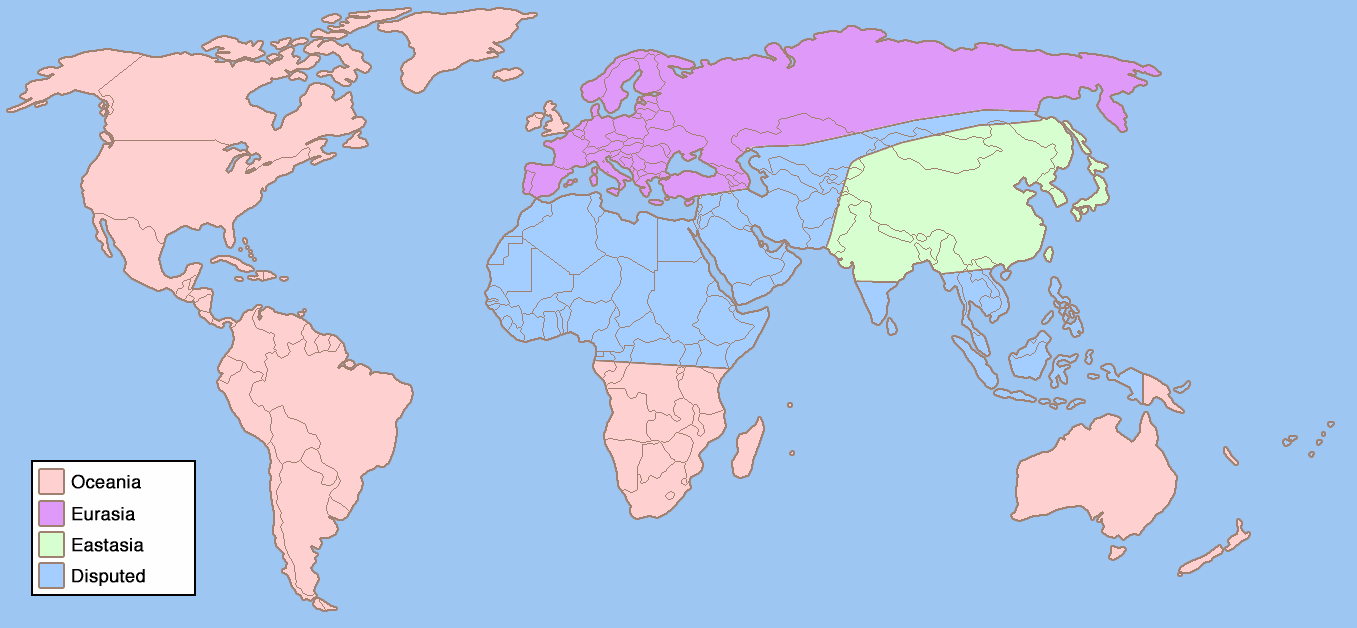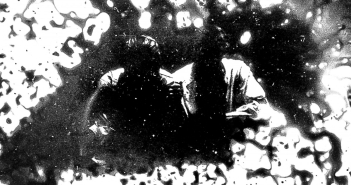George Orwell has never been unfashionable, and is in vogue now more than ever. His writing, best represented by his many essays on a variety of subjects, rather than the more celebrated novels, presage in myriad ways the problems we face today.
Those famous novels 1984 (1949) and Animal Farm (1945) are visionary works depicting totalitarian societies, but in a more significant way it is the cornucopia of themes broached in his essays that anticipate a present era of thought control.
Orwell despised abstractions, especially nationalism, but also extremism on the left. Accordingly, in his essays we find focus on the particular and daily life. All political concerns are deemed local. Indeed, his works is identifiable as part of British tradition of empiricism with its distrust of grand ideas and gestures.
Mumbo-Jumbo
Orwell would have no time for the mumbo-jumbo of post-modernism and structuralism, just as he dismissed the ideological psychobabble of fascism and Communism. Instead he venerated the common sense of the ordinary person, and was deeply sensitive to how ideologies crushed the human spirit.
Yet he was also aware of how seductive ideologies could be, anticipating what Zizek has called ‘ideological misidentification’ – that includes voting for those who will undermine your interests, as blue collar America did in electing Trump; or believing what you read in The Daily Mail about foreigners.
Orwell is nonetheless firmly opposed to the mentality of the mob. Were he alive today, he would surely be a genuine tribune for those on the margins of society, but decidedly against the recrudescence of Populism and appeals to bigotry.
The casual racism he despised, now so evident in many cultures including Britain, was shaped by his experiences of British colonial barbarism in Burma, as indeed was his hatred of the death penalty, invoked in his short story A Hanging (1931), which was based on personal experience.
Orwell would definitely understand how, through social media and the machinations of Cambridge Analytical the ordinary man is manipulated – brainwashed even – by subliminal messaging and online influencers. Perhaps the docile uncritical consumerism we are creating is best represented in Aldous Huxley’s dystopian 1932 novel Brave New World (1932), a companion piece to 1984 and Animal Farm for understanding our troubled zeitgeist. Either way, both Orwell and Huxley saw what was coming.
Throughout his writing Orwell emerges as the champion of the underdog, and zealous opponent of vulgar nationalism, whether emanating from state authorities, or the untutored blatherings of brainwashed victims.
Orwell had no truck with popular prejudice, esteeming instead basic decency. Doubtless, he would recognise how the populace could be whipped into a mass frenzy today and vote in crypto-fascists or even for Brexit. He was sensitive to how popular decency could be corrupted by propaganda into anti-Semitism and the portrayal of Eastern Europeans as degenerates, as he addresses in Notes on Nationalism (1945).
Uncommon beliefs
Orwell thus is a believer in the common sense of the common man, but not popular prejudice or vulgar nationalism, or especially not the racism that spills forth from the mouths of those subjected to propaganda.
He is prescient about how an ordinary person intuitively believes in the Rule of Law. Thus, in ‘The Lion and The Unicorn’ (1940) he argues that the English believe in law, not power. He further opines in ‘Inside The Whale’ (1940) that this stems from a lack of experience of violence and illegality: ‘With all its injustices England is still the land of habeas corpus and the overwhelming majority of English people have no experience of violence and illegality.’
Homage to Catalonia (1938) is an account of his his Spanish sojourn fighting on the Republican side during the Spanish Civil War against Franco’s fascists. There he saw clearly how extremism of both left and right has no restraints or humanitarian boundaries, and that a society morphs rapidly into lawless banditry.
Dotty Dreamland
The dotty dreamland of England, then and now, is suffused with moderation, incrementalism and a lack of experience of licensed thuggery. This is the basic decency Orwell finds in the novels of Charles Dickens, along with a sympathy for the underdog.
Living in London I now recognise that the British do not seem to understand, rightly so – and certainly do not tolerate – the manipulation or abuse of law by power.
In this, arguably, they stand alone in Europe, where we see the law used as a tool of oppression in Spain by proto-fascists, who have imprisoned those with the temerity to hold a peaceful independence referendum; not to mention the crypto-Nazi enclave of Orban’s Hungary, and with the rise of La Liga in Italy; more insidious in Ireland is the undermining of decency and corporate takeover.
The championing of the underdog is a noticeable feature of British life, and the obligation to vindicate the rule of law against the interests of the powerful is still taken seriously, unlike in Ireland which endorses the interests of the corporations to such an extent that the state resists a tax windfall of €13 billion.
It is not for nothing that the reasonable man test, or the notional man on the Clapham Omnibus, is intrinsic to British legalism and the Rule of Law.
That is perhaps why the British became so resistant to the idea of their interests being undermined by faceless bureaucrats for Europe, although tragically the result of Brexit may be to deliver them into the hands of a worse set of faceless bureaucrats in the shape of the American corporatocracy.
In ‘The Lion and the Unicorn’ (1940) Orwell emphasises how the British are repelled by miscarriages of justice, and believe in holding power accountable, which demands impartial administration of justice by independent officials, who are not bought or compromised. This originates in patterns of independent and generally depoliticised appointment not evident in most other European jurisdictions.
Use of language
Orwell is highly attuned to the misuse of language. A prevalent theme is how expression should be clear and unequivocal, in a plain style emphasising the virtues of informality and flexibility. Thus he sedulously exposes techno-babble, and the notorious doublespeak encapsulated by slogans such as ‘four legs good two legs better’ from Animal Farm, which anticipate the arrival of political spin doctors. In short, he saw post-truth coming.
This includes the fakery of our present narratives, where innocent slogans conceal and occlude a multitude of evils. So terms like ‘austerity’ or ‘fiscal stabilization’, or even ‘ethnic cleansing’, are adopted to mask individual and societal destruction.
Similarly, the anodyne word ‘evacuation’ was used neutrally by Nazi Reinhardt Heydrich at the Wanassee Conference in 1942 to convey crimes against humanity and genocide. Today sloganing by advertisers, hucksters and snake oil salesmen of all shapes and hues are inducing a form of corporate fascism, and state-sponsored murder.
1984 is a novel about the totalitarian left, as well as the right. Orwell had a ringside seat on the evils of both in Barcelona during The Spanish Civil War, documented brilliantly in Homage to Catalonia (1938).
Piquant Irony
It is a piquant irony of intellectual discourse that the left should have embraced the meandering nonsense of post structuralism from the 1960’s onwards only to see it appropriated by the alt right. Truth is not truth Donald as he must have been advised, and Mr .Giuliani echoes.
Thus as Derrida can change meaning from one sentence to another, so can Trump or Bannon.
In The Politics and The English Language” (1947) Orwell cauterises the elevation of grammar and syntax as indicia of anything, and focuses on the precise use of language and the avoidance of cliché, or what he terms Americanisms.
In fact, focusing on grammatical form, at the expense of content, is the classic sign of a box-ticking pedantic and second-class intelligence, or an establishment ruse designed to avoid engagement with arguments of substance.
The post truth universe that he saw on the horizon is a feature of most his writing. Thus, in ‘Looking Back at The Spanish Civil War’ (1942) he observes that totalitarianism denies that objective truth exists, and in ‘Notes on Nationalism’ (1945) he points out presciently: ‘Since nothing is ever proved or disproved, the most unmistakeable fact can be impudently denied.’
These are tactics evident in Mr. Giuliani aforementioned denial of objective truth and Ryanair’s Mr. O’Leary denial of climate change. An approach which, by being reported on, rather than dismissed outright, is given a veneer of respectability
It is also increasingly evident that that those in power blind themselves to their outright criminality, as long as it comes from their own side, including the Neo-Cons and Blairite proponents of just war, known euphemistically as ‘humanitarian interventions.’
Increasingly, the true subversives among the state and corporate oligarchy inflict criminality on others with impunity. As Orwell writes in his ‘Notes on Nationalism’ (1945): ‘There is no crime, absolutely none, that cannot be condoned when our side commits it.’
They ask: are you with us or against us? One of us, or representing the demonised and excluded Other. This is particularly prescient in an age of increasing fractiousness, intolerance and division.
Orwell chose the middle way, however difficult that path may be. Today being reasonable is often not viable. Alas, he who shouts loudest gains most in our present distorted politics.
The Enemies of Truth
In ‘The Prevention of Literature’ (1946) we find Orwell revealing that the enemies of truth and freedom of thought to be press lords and bureaucrats. Then as now, and let us add for good measure include social media manipulators and multinational corporations.
Perhaps his definitive essay is ‘How The Poor Die’ (1929), a crucial text for these times of austerity, where social supports are being steadily withdrawn. The unthinking consequences of an awful ideology, or rather a deliberately planned extermination of anyone deemed unworthy, alongside the cartelisation of wealth into ever decreasing bands, and hands.
The focus of Orwell is of course also on secularism and the Enlightenment; the repudiation of false Christian values.
In an essay on Jonathan Swift the author of Gulliver’s Travels he suggests the one-time Dean of St. Patricks Cathedral rejected the Christian idea of an afterlife, a view commended by Orwell. Swift himself was also highly attuned to the interests of the poor in Ireland, subjected to the excesses of Malthusian capitalism, a theme which he brilliantly parodies in his disturbing ‘A Modest Proposal’. (1729). The consumption of babies is used to highlight a meltdown in human fellowship familiar to our present time.
So there we have it, George Orwell, dead in 1950 but not as Dead as Doornails. Right back in fashion in fact and on the money.
Why? Well in essence his own time of totalitarianism, economic meltdown, fascism and propagandistic post-truth are replicated in our own, while his fiction, and especially his essays, are an intellectual counterweight more relevant than ever.
Let us thus secularly worship Eric Blair, not Tony Blair. He was the prince of journalists, a writer of mystic prescience and curiously, perhaps the single most relevant intellectual for our day and age.
All references are from The Collected Essays, Journalism and Letters of George Orwell (Secker and Warburg 1968).




